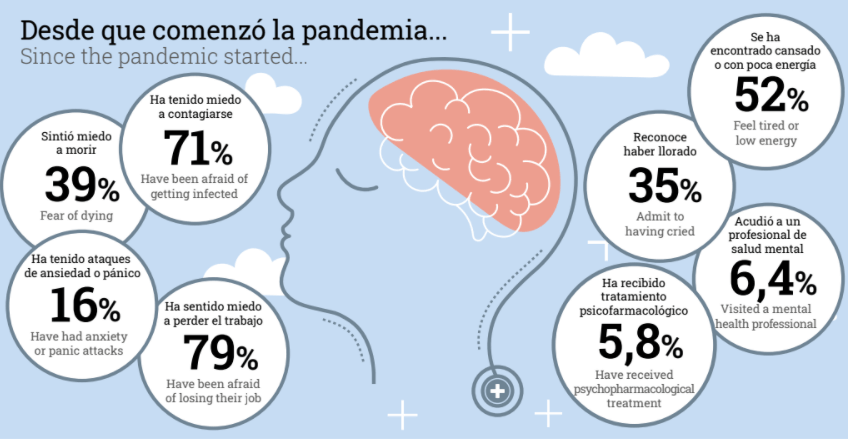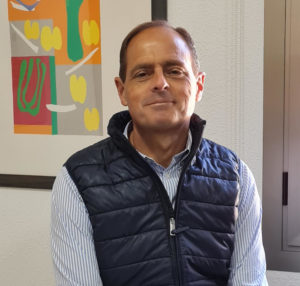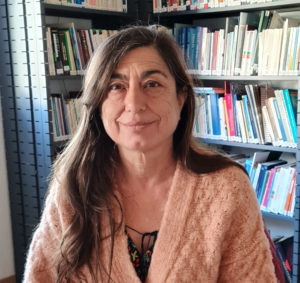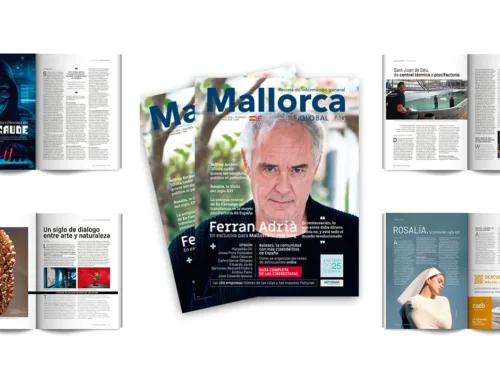Psychologists warn of the lack of professionals to face a mental health pandemic, one which they anticipated over a year ago.
Text: Raúl Beltrán.
“Every day, I have less desire to go out and contact with people feels suffocating. I don’t enjoy things like I did before, I’m unmotivated, and since lockdown thinking about the future of my work life makes me feel profoundly anxious.” This is how a patient affected by the Covid-19 crisis describes the general malaise he suffers. His case is that of thousands of Spaniards who are now constantly facing crisis’s of anxiety, uncertainty, financial problems, unresolved grief…

The most silent pandemic, at least so far, that of the mental health of citizens, “is already here and won’t be leaving anytime soon.” The words of Javier Torres, dean of the Official College of Psychology of the Balearic Islands (COPIB), are this blunt. As Margalida Gili, professor at the UIB mentioned in the previous issue of Mallorca Caprice by Mallorca Global, the lack of priority given to psychology in the management of the pandemic, has led to a psychological unease which is at risk of becoming entrenched among the population.
Children, adolescents and the elderly are those who are suffering the most from the psychological consequences of this crisis, but “no matter the age segment, it has affected everyone.” For this reason, the dean assures that “if you perceive that you have any problem that affects your daily routine, you should not be afraid to ask for help from a psychology professional.”
The future is uncertain. And although there is no magic formula to appease oneself, Torres advises that, while normality is restored, “perhaps it is necessary to continue with one’s personal development, maybe hold off on new projects, reinvent oneself and, above all, maintain hope”.
The Balearic Islands are stretched to capacity
“The statistics are there. Consultations have increased by 30% and health services are overwhelmed; Appointments are being given for three months’ time and the lack of availability of doctors leads to over-medication of patients, ”says Torres.
The lack of professionals in the Balearic Islands and in the rest of Spain is evident. “We have between three and four psychologists for every 100,000 inhabitants, while in the European Union the average is eighteen,” explains the dean of the COPIB. “We are insisting to the Government on the imperative need to increase the number of public placements. Treatment is a right of the citizens, not a privilege”.
- Javier Torres, dean COPIB. Foto, R.B.
- Carmen Aguiló, mindfulness coordinator. Foto: R.B.
Mindfulness, a way of being
“Being in the moment, without allowing the past or the future to direct our lives” is one of the keys to mindfulness. Carme Aguiló, coordinator of this discipline at the COPIB, explains how to develop habits of “mental hygiene” and live life with greater tranquility, because “human beings are prepared to adapt.”
Mindfulness “discerns from the belief that things can only be done well one way. You do not have to fight what is happening, but learn to accept it and allow it to happen, because nothing is everlasting, nothing is forever. Neither what we like nor what we dislike”, concludes Aguiló.
6 pieces of advice:
- Understand what is happening to us.
- Reeducate the mind to be attentive.
- Do not look for solutions where there are none.
- Live with the reality of current events, adapt to the moment.
- Control and modulate the intensity of emotions.
- Make peace with yourself.









Leave A Comment